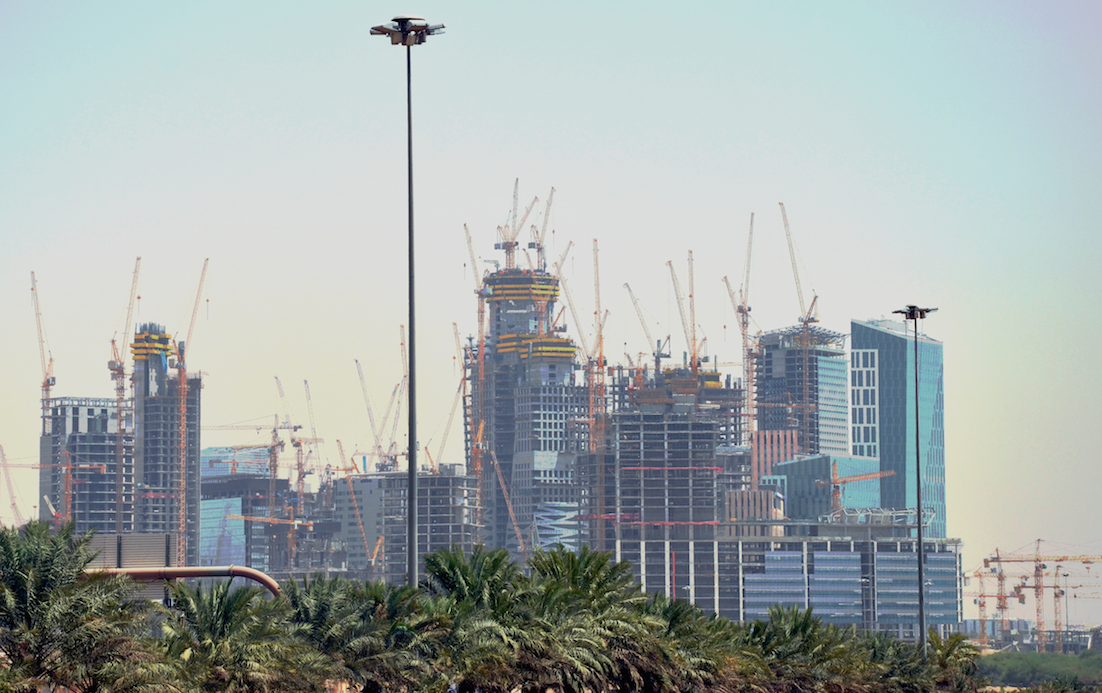Saudi Arabia, the world’s largest oil exporter and the Middle East’s biggest economy, is about to complete a gradual process to open its stock market, known as the Tadawul or TASI, directly to international investors for the first time. The initial step toward this action was to give other GCC countries the right to invest directly in the Saudi stock market. Following that, foreign investors were permitted to invest in the Saudi stock market indirectly through swap contracts held by authorized brokers in Saudi Arabia.
To ensure the success of this transition, the Capital Markets Authority (CMA), which is the chief Saudi regulator for the TASI, will need to establish new regulations to minimize potential risks to the stability of the Saudi stock market.
Saudi Arabia’s stock market may soon open for more international investment.
Most likely, the CMA will apply something close to the China model, Qualified Domestic Institutional Investor, also known as QDII, which allowed investors to invest in foreign securities markets via certain approved fund management institutions, insurance companies, securities companies and other assets management institutions.
However, the authority needs to modify some criteria in QDII to be suitable to the size of the Saudi stock market, including the financial capacity and number of staff members of qualifying foreign investors. Also, the authority needs to put extra restrictions to guarantee the stability of the stock market and control volatility. International investors may be asked to lock up a fixed portion of their investment in the stock market for a certain time so that the market will avoid hot money and big jumps in the stock index. The authority also will put some restrictions on the maximum ownership stake in local companies by qualified foreign investors to prevent foreigners from owning leading industries in Saudi Arabia.
Opening the Saudi stock market for foreign investors definitely will increase the market liquidity, especially since many emerging market asset managers have been waiting for a chance like this. There are many reasons why the Saudi stock market will attract liquidity overseas. First, because of the debt crisis in the Eurozone, foreign investors are looking for a safe market to invest their money and manage their portfolios. The nature of the economy of Saudi Arabia is the ultimate environment for those investors, considering the stability of the Saudi economy, which is supported by oil prices. Second, Arab Spring tumult that occurred in Tunisia, Egypt, Yemen, Bahrain, and Syria has not spread to Saudi Arabia, which gives foreign investors more confidence to invest in the Saudi stock market. Also, some foreign investors are attracted to the Saudi stock market since it is relatively new and not mature, which may result in attractive growth opportunities.
The short-term impact of opening the Saudi stock market to foreign investors may include increasing the liquidity in the market, leading to increased demands for companies’ shares, eventually increasing the value of those shares and increasing Saudi citizens’ wealth. However, foreigner investors won’t be interested in all companies listed in the Saudi stock market. They would be interested in a leading company like SABIC or any company in the petrochemical and financial sectors. The increasing value of these shares may have a side effect on the Saudi economy, since liquidity is a strong cause of inflation and thus necessitates some cooperation between the Saudi Arabian Monetary Agency (SAMA) and the CMA to keep a sustainable inflation rate.
Opening the Saudi stock market to international investors might have a negative impact on other stock exchange markets in the Middle East, which will suffer from a lack of liquidity in the short- and medium terms. In the long term, one can anticipate that opening the Saudi stock market will increase the transparency and efficiency of the market and will offer a perfect chance for the CMA to fix some drawbacks in the stock market. The CMA can generalize some rules on big investors without distinguishing whether or not these investors are Saudis, like controlling cash inflow and outflow from the market. As mentioned above, this will prevent the impact of hot money; more importantly, it prevents big local investors from manipulating the stock market and decreases the volatility.
This has been an issue in the Saudi stock market where big investors control the direction of the market due to lack of competitiveness and transparency in the market. Also, all the companies listed in the market will have no choice but to update and issue their financial statements regularly and precisely. In terms of macroeconomics factors, opening the stock market will create more job opportunities and increase competitiveness in the financial sector, which eventually increases the welfare and satisfaction of Saudi citizen.
Long-term, the government of Saudi Arabia may need to issue some bonds to decrease liquidity in the market and contain inflation. This actually might have a positive impact since it gives the government extra resources to finance big projects and activate the bond market, which currently is almost inactive.
The big concern about opening the Saudi stock market internationally is whether or not local investment companies can compete with international investment companies. There may be a gap in terms of technology and experience. Also, is the CMA mature enough to handle derivatives and options that international investors may use, or will it ban these kinds of contracts?
Hussain Abusaaq earned his Ph.D in Economics, MS in Financial Mathematics and MS in Economics from Florida State University. He is a Saudi citizen who has worked for the Saudi Arabian Monetary Agency and the Arabian American Oil Company (Aramco).









